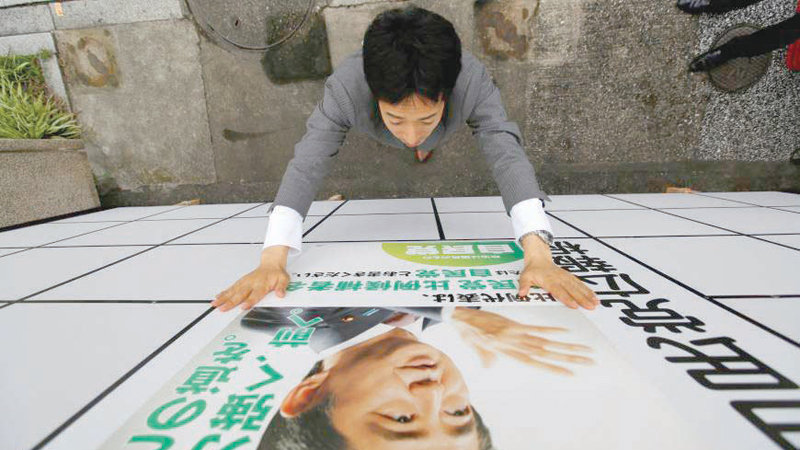

TOKYO: Japan’s “Abenomics” stimulus programme is sputtering just as the government and the central bank wanted to tap the brakes, heightening the chance they will be forced to fight the next economic downturn with a near-empty policy arsenal.
Analysts say Japan will avoid a recession — two consecutive quarters of contraction — and suggest the first-quarter slump was a soft patch caused by temporary factors like bad weather and weak stock markets.
But there are signs growth is moderating after two years of expansion. Factory output slowed and inventory rose in April, a sign firms may have overestimated global demand.
Escalating trade frictions from US President Donald Trump’s protectionist policies are taking a toll on business sentiment, which turned negative for the first time in a year, according to a government survey. Wages are barely rising, even as companies reap record profits from Prime Minister Shinzo Abe’s policies.
Household spending slumped in April and service-sector activity slowed in May, casting doubt on the strength of consumption - which makes up 60 per cent of the economy.
And unlike five years ago, when the Bank of Japan deployed a “bazooka” stimulus package to pull the economy out of stagnation, the central bank is now out of ammunition to spur growth.
Late last year, central bank policymakers were brainstorming ways to communicate an eventual exit from ultra-easy policy as years of near-zero rates strain Japan’s banking system, according to five sources familiar with the central bank’s thinking.
Such debate has died down as clouds hang over the recovery and inflation remains disappointingly weak, they say.
“When inflation is so subdued, it’s hard to signal even prospects of a future exit from easy policy,” said one of the sources, expressing a view echoed by two other sources. All declined to be identified because they were not authorised to speak to the media.
Although gloomier economic prospects could keep the central bank from whittling down stimulus, the threshold for further monetary easing is high.
It would take a sharp increase in the yen, or an external shock big enough to tip the economy back into stagnation, for the central bank to ramp up stimulus, the sources say.
There is little room to boost bond buying, as years of purchases have left the BoJ owning nearly 40 per cent of the entire bond market.
Cutting the BoJ’s interest rate targets, now set at minus 0.1 per cent for short-term rates and zero per cent for 10-year bond yields, is also controversial, as doing so would crush already narrowing bank margins, analysts say.
Some in the central bank say the next move is up to the politicians, though Japan’s dire fiscal state leaves Abe with little room for a big spending spree.
With Japan saddled with the biggest public debt of any major economy, Abe insists he will proceed with a twice-delayed increase in the sales tax next October barring an event on the scale of the 2008 collapse of Lehman Brothers.
But the outlook for a softer economy throws into doubt his commitment to balance the budget 0151 a pledge already watered down after he pushed the target date back five years to 2025.
Abe has already voiced readiness to boost spending to offset the pain from the planned sales tax increase, mostly through tax breaks and incentives for car and home purchases. — Reuters
Oman Observer is now on the WhatsApp channel. Click here



